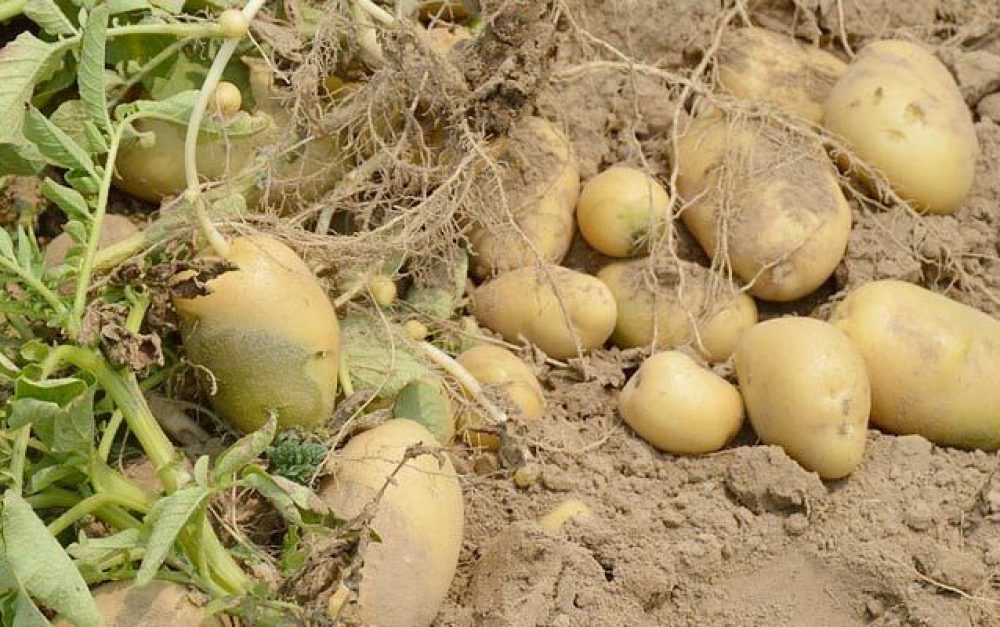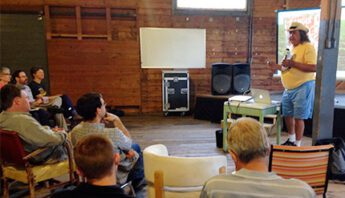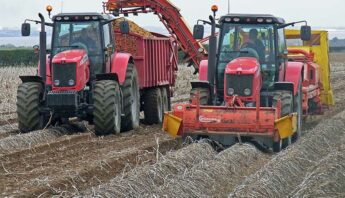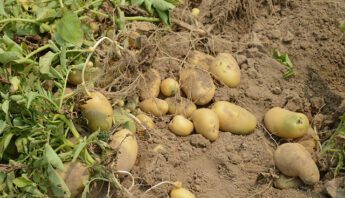Community groups call on agency to conduct rigorous, public environmental review on pine-to-potatoes conversion
FOR IMMEDIATE RELEASE: January 11, 2016
Contact:
Lex Horan, Pesticide Action Network, lex@panna.org, 651.245.1733
Amy Mondloch, Toxic Taters Coalition, tatercoordinator@gmail.com, 218.850.3629
Stephanie Porter, Land Stewardship Project, stephaniep@landstewardshipproject.org, 443.878.9073
Callaway, MN – Today, Toxic Taters, Land Stewardship Project and Pesticide Action Network granted a request from the Minnesota Department of Natural Resources (DNR) for a 30-day extension on the groups’ petition calling for an environmental assessment on potato producer RD Offutt’s expansion into the Pineland Sands Aquifer. During the 30 days of the temporary stay, DNR will not be allowed to grant any new irrigation permits to RD Offutt. Petitioners, RD Offutt (RDO) and the DNR will enter negotiations to discuss the scope of a proposed DNR study on the impacts of Offutt’s expansion.
“We’re here to protect to the water. We want our water to be safe to fish in, to swim in, to drink. We want it to be safe to breathe the air in our communities. We need the strongest environmental review possible. If sitting down with RDO and the DNR could mean strengthening the environmental review, we’re willing to do that,” said Toxic Taters Coordinator Amy Mondloch.
In November, over 240 Minnesotans, mostly people living near RD Offutt’s current and proposed potato fields, signed a petition to the DNR calling for an environmental assessment worksheet (EAW) on RDO’s proposed expansion. Petitioners listed numerous concerns about RDO’s water- and chemical-intensive farming practices.
The Pineland Sands aquifer, spanning Cass, Hubbard, Becker and Wadena counties, is a sensitive aquifer with sandy soils, in which contaminants drain quickly into groundwater. The most recent phase of RDO’s project includes requests for five new irrigation permits, which on their own will use more than 166.4 million gallons of water per year. These are only five of the 54 irrigation well permits that RDO initially requested. DNR has already approved a permit for one of the five wells.
RD Offutt and the DNR have outlined a taxpayer-funded study that they would like to use instead of the existing environmental review process.
Stephanie Porter of Land Stewardship Project said, “An EAW on these last four wells is a reasonable request for the DNR to make of RDO. It is common sense to look at and prevent potential environmental harms of a project before they occur, and the EAW is the best way to do that. It is reliable and keeps companies accountable to the public. We’re frustrated that both DNR and RDO have been resistant to an EAW, but we’re open to exploring the study as another tool to assess the project’s impact.”
RD Offutt and the DNR have outlined a taxpayer-funded study that they would like to use instead of the existing environmental review process. The company and the agency intend to seek funding for the study from the state legislature in the coming session.
Lex Horan of Pesticide Action Network said, “As the study is currently designed, there is no opportunity for public input, and the scope is much too narrow to account for impacts like pesticide drift and pollinator decline. We’re prepared to negotiate with RDO and DNR on the terms of the study, but if our conversations aren’t productive, we’ll reinstate the petition and count on the public process already in place: the EAW.”
Toxic Taters coordinator Amy Mondloch summarized the group’s interests: “It’s really simple. Rural Minnesota is our home. We’ll do what need to do to protect it. We hope that the DNR will fulfill its responsibility to the people of Minnesota and that we can come out of this process with the strongest possible environmental review to ensure that RDO’s farming practices won’t cause undue harm to our home.”
###







